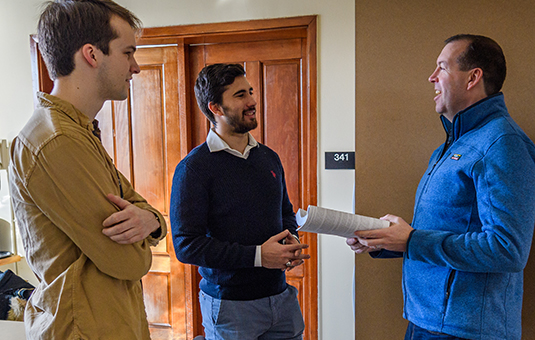Computer Science
Software mode changes for continuous motion tracking
Abstract
Robot control in nonlinear and nonstationary run-time environments presents challenges to traditional software methodologies. In particular, robot systems in “open” domains can only be modeled probabilistically and must rely on run-time feedback to detect whether hardware/software configurations are adequate. Modifications must be effected while guaranteeing critical performance properties. Moreover, in multi-robot systems, there are typically many ways in which to compensate for inadequate performance. The computational complexity of high dimensional sensorimotor systems prohibits the use of many traditional centralized methodologies. We present an application in which a redundant sensor array, distributed spatially over an office-like environment can be used to track and localize a human being while reacting at run-time to various kinds of faults, including: hardware failure, inadequate sensor geometries, occlusion, and bandwidth limitations. Responding at run-time requires a combination of knowledge regarding the physical sensorimotor device, its use in coordinated sensing operations, and high- level process descriptions. We present a distributed control architecture in which run-time behavior is both preanalyzed and recovered empirically to inform local scheduling agents that commit resources autonomously subject to process control specifications. Preliminary examples of system performance are presented from the UMass Self-Adaptive Software (SAS) platform.



